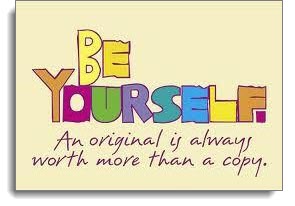 There is a common misconception that all introverts like to, and want to, be alone most of the time, and all extroverts like to, and want to, be with other people almost all of the time. In my experience, I haven’t found this generalization to be true.
There is a common misconception that all introverts like to, and want to, be alone most of the time, and all extroverts like to, and want to, be with other people almost all of the time. In my experience, I haven’t found this generalization to be true.
Take me, for example. I am categorized as an extrovert on almost every personality type test that I take. On the Myers-Briggs Type Indicator (MBTI) assessment, I come up as an ENTJ, which stands for Extrovert, Intuitive, Thinker, and Judger (which by the way, refers to someone that prefers structure, is decisive and wants things completed, not to someone that is judgmental of others).
 Because of my “extrovert” label, it often comes as a huge surprise when people learn that I really like to be alone. No, actually, I love to be alone. I love to be with others also, but I very much crave and need my alone time. I actually spend enormous amounts of time alone these days. Since relocating from New York to California, my husband maintains a grueling residency schedule which means he is not home as often as he used to be when we lived in NY. As a self-employed entrepreneur who does a lot of virtual work with my clients by phone and video conference, many of my work days are spent here at my home office… alone.
Because of my “extrovert” label, it often comes as a huge surprise when people learn that I really like to be alone. No, actually, I love to be alone. I love to be with others also, but I very much crave and need my alone time. I actually spend enormous amounts of time alone these days. Since relocating from New York to California, my husband maintains a grueling residency schedule which means he is not home as often as he used to be when we lived in NY. As a self-employed entrepreneur who does a lot of virtual work with my clients by phone and video conference, many of my work days are spent here at my home office… alone.
I think there is a big difference between being alone and feeling lonely. When I’m alone, I enjoy passing the time by being productive through working or maintaining my life and home, or engaging in some of the many hobbies and passions that I enjoy doing. Do I ever get lonely? Not really. I do miss certain people a lot. I think missing people and feeling lonely are two different things though.
I know some introverts that do enjoy being around other people very much. Some introverts can be extremely outgoing and crave social interaction, as long as they then have time to be alone to rejuvenate and re-energize. And then there are extroverts like me, that can be jazzed about standing up in front of 500 people to do a speaking engagement, but really enjoy being alone before and after that speaking engagement so that I can regroup, reflect, and re-energize.
In her well-researched and fascinating book, “Quiet: The Power of Introverts in a World That Can’t Stop Talking” author Susan Cain discusses the concept of a Restorative Niche. Restorative Niche is the term for the place you go when you want to return to your true self. Even if you sometimes adapt to the situation and force yourself to take on more extroverted or introverted traits, you need a safe place to return to where your true traits are able to shine through. It can be a physical place, like the woods on a hike, an office with a closed door, etc., or a temporal one, like taking a break between phone calls. It can mean staying alone in the hotel room at a big conference instead of with a colleague, being alone before or after you go on stage as a speaker, saying no to social plans many nights in a row, etc. I love this concept, and have seen it at work in my own life, and that of my family, friends, colleagues, and clients.
When choosing a work environment, give consideration to whether there is an opportunity to engage in Restorative Niches for yourself.
Introverts may want to ask themselves:
 Will the work allow me to spend time doing in-character activities like reading, strategizing, writing, and researching?
Will the work allow me to spend time doing in-character activities like reading, strategizing, writing, and researching?- Will I have a private workspace or be subject to the constant demands of an open office plan?
- If the work itself doesn’t provide enough restorative niches, will I have enough free time on evenings and weekends to grant them to myself?
Extroverts will want to look for restorative niches too.
- Does the work involve talking, traveling and meeting new people?
- Is the environment stimulating enough?
- Will I be stuck sitting at a desk behind a computer screen all day with no human interaction?
- If the job isn’t a perfect fit, are the hours flexible enough that I can blow off steam after work?
Sometimes people find Restorative Niches in professions where you’d least expect them. An attorney that is able to spend time alone researching and writing all day. An actress that has a career as a voice over artist recording audio books alone in a studio. It’s not important what your job title is, or whether you own your own business, etc. What’s important is whether your work matches your personality type, or if you can find Restorative Niches when you need them. For me, being a self-employed entrepreneur does mean a lot of time at home, but it also means having the opportunity to connect with people at networking events, when I’m on stage as a speaker, and through doing my private and group coaching and consulting. It also means that if I have been sitting at my desk too long with no human interaction, that I can go out and join a group for a bike ride, or meet a friend or colleague for coffee. In other words, my work has built in opportunities for Restorative Niches.
 What about you? Are you an extrovert that surprisingly loves being alone? Or are you an introvert that does enjoy a lot of social interaction? Let’s not limit ourselves to labels. Using Restorative Niches can help us go back to our true self when we need to, but sometimes we may not even need them in the first place. Sometimes we are who we are, and it’s just right — no matter what the labels say.
What about you? Are you an extrovert that surprisingly loves being alone? Or are you an introvert that does enjoy a lot of social interaction? Let’s not limit ourselves to labels. Using Restorative Niches can help us go back to our true self when we need to, but sometimes we may not even need them in the first place. Sometimes we are who we are, and it’s just right — no matter what the labels say.

